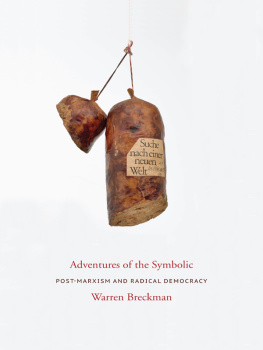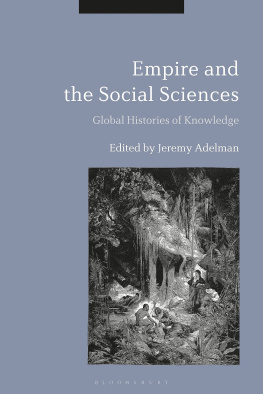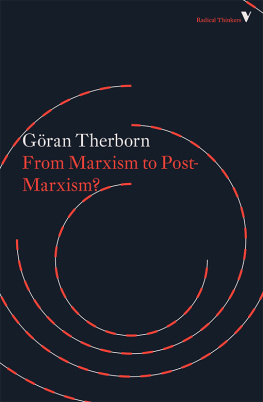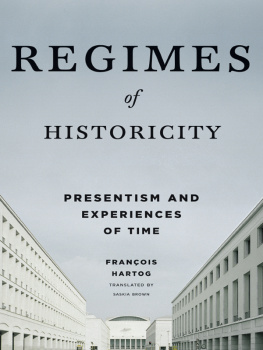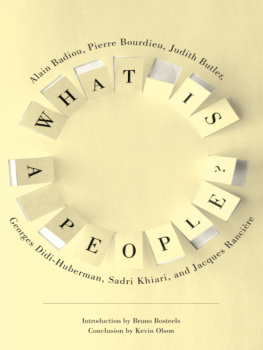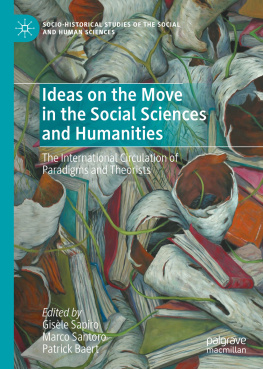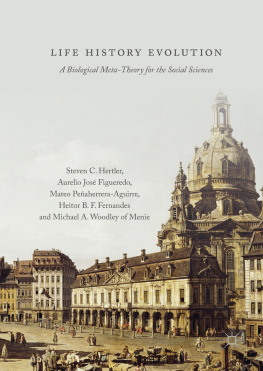Adventures of the Symbolic
COLUMBIA STUDIES IN POLITICAL THOUGHT/POLITICAL HISTORY
Columbia Studies in Political Thought/Political History
Dick Howard, General Editor
Columbia Studies in Political Thought/Political History is a series dedicated to exploring the possibilities for democratic initiative and the revitalization of politics in the wake of the exhaustion of twentieth-century ideological isms. By taking a historical approach to the politics of ideas about power, governance, and the just society, this series seeks to foster and illuminate new political spaces for human action and choice.
Pierre Rosanvallon, Democracy Past and Future, edited by Samuel Moyn (2006)
Claude Lefort, Complications: Communism and the Dilemmas of Democracy, translated by Julian Bourg (2007)
Benjamin R. Barber, The Truth of Power: Intellectual Affairs in the Clinton White House (2008)
Andrew Arato, Constitution Making Under Occupation: The Politics of Imposed Revolution in Iraq (2009)
Dick Howard, The Primacy of the Political: A History of Political Thought from the Greeks to the French and American Revolution (2010)
Robert Meister, After Evil: Human Rights Discourse in the Twenty-first Century (2011)
Paul W. Kahn, Political Theology: Four New Chapters on the Concept of Sovereignty (2011)
Stephen Eric Bronner, Socialism Unbound: Principles, Practices, and Prospects (2011)
David William Bates, States of War: Enlightenment Origins of the Political (2011)
Adventures of the Symbolic
POST-MARXISM AND RADICAL DEMOCRACY
Warren Breckman
COLUMBIA UNIVERSITY PRESS
NEW YORK
Columbia University Press
Publishers Since 1893
New York Chichester, West Sussex
cup.columbia.edu
Copyright 2013 Columbia University Press
All rights reserved
E-ISBN 978-0-231-51289-3
Library of Congress Cataloging-in-Publication Data
Breckman, Warren, 1963-
Adventures of the symbolic: post-Marxism and radical democracy / Warren Breckman.
pages cm.(Columbia Studies in political thought/political history)
Includes bibliographical references and index.
ISBN 978-0-231-14394-3 (cloth: alk. paper)ISBN 978-0-231-51289-3 (e-book)
1. Political sciencePhilosophy. 2. Social sciencesPhilosophy. 3. Philosophy, Marxist. 4. Democracy. 5. Radicalism. I. Title.
JA71.B734 2013
321.8dc23
2012037769
A Columbia University Press E-book.
CUP would be pleased to hear about your reading experience with this e-book at .
COVER IMAGE: Dieter Roth, Literaturwurst (1969). Copyright Dieter Roth Estate.
Courtesy Hauser & Wirth. Copyright The Museum of Modern Art/Licensed by SCALA / Art Resource, NY.
COVER DESIGN: Milenda Nan Ok Lee
References to Web sites (URLs) were accurate at the time of writing. Neither the author nor Columbia University Press is responsible for URLs that may have expired or changed since the manuscript was prepared.
For Cordula
Contents
THE PARALLEL OF BRECKMANS TITLE and his critical analysis to Maurice Merleau-Pontys Adventures of the Dialectic, which was published in 1955, is well taken. Merleau-Ponty was concerned with the fate of Marxism in the postwar climate. He sought to understand the reemergence of dialectical thought as an attempt to overcome the challenge to classical liberalism that Max Weber formulated as the opposition of an ethics of conviction and an ethics of responsibility. Dialectical Marxists, most prominently Georg Lukcs, sought to go beyond the antinomies of liberalism by finding a synthesis incarnated by the proletariat; the working class was said to be both the subject of history and its product, a being that was both individual and yet total, one that incarnated the future in the present. The triumph of Leninism, then Stalinism, put an end to this revolutionary synthesis, and the Trotskyist opposition was not able to restore the historical hope. Merleau-Ponty concluded his account with a devastating critique of what he called Sartres ultra-bolshevism, which he considered a voluntarist attempt to go beyond history when Marx understood communism as the realization of history.
The parallel account in Breckmans Adventures is concerned with the fate of what he calls post-Marxism. Merleau-Ponty and Breckman differ, of course, in many ways; Breckman is a historian, not a philosopher; as he says at several points, rather than offer its own normative construction, his work assesses or evaluates a complex path, which he narrates. But if there is not an exact parallel there is, to use a term from the Romantics that Breckman stresses elsewhere, an analogy between the projects. Just as Merleau-Ponty began his story with an account of the constitution of his object of study, the dialectic, from the work of Max Weber, so Breckman begins his history with the constitution of its object, the symbolic. Breckman begins with the problem posed to the young (or left) Hegelians by the insistence of the late Schelling and his Romantic followers that the real is not only, or truly, the rational; how, then, is one to understand the irreducible otherness of the world to thought? This is territory that Breckman had covered from one perspective in Marx, the Young Hegelians, and the Origins of Radical Social Theory; he retraces in this new work, compactly, the process by which the Hegelian opposition, and finally Marx, built their theory on a desymbolization, the reduction of the transcendent to the immanent and the secularization of social relations. But Marx had no monopoly on radical social theory; in his second chapter Breckman underlines the place of another line of leftist theory whose first formulation he finds in the romantic socialism of Pierre Leroux. This alternate orientation sets the stage for the climb back to a resymbolization of radical thought whose avatars were the fathers of what came to be known as French theory: Lvi-Strauss, Althusser, and Lacan. Breckman interprets this process of resymbolization, which is often referred to as the linguistic turn, as an attempt to rescue radical thought from Marxism and its dialectical misadventures. While this claim is questionable in the case of Althussers structural Marxism, Breckmans interpretation of the structuralist movement is suggestive.
These first two chapters are only the beginning of Breckmans attempt to present a more or less coherent narrative that has something like a beginning, a series of variations that rearticulate that first insight, and a conclusion that returns to that beginning in order to reaffirm its basic insights. He then turns in the second section to the central chapters of the book, which treat first Cornelius Castoriadis, then Claude Lefort. The former comrades, ex-Trotskyists become Marx critics, bring front and center the problem of democracy. Broadly interpreted, resymbolization replaces the base/superstructure account with a vision of the social world as constructed; it replaces the determinism of historical materialism by a recognition of indetermination and stresses democracy rather than a state-centered, planned political world. But this changed perspective poses a new question: what is the foundation of social relations? The search for the grounds of social relations and the source of social values points beyond the immanence of secular society toward the dimension of transcendence that had been the domain of theology before the avatars of modernity and Marxism challenged its credibility. The challenge of Schelling to Hegels rationalism returns, now in the various forms of deconstruction, of which Breckman offers a coherent panorama that richly repays reading. But he goes on to point to the richness of the alternate paths proposed by Castoriadis and Lefort.

